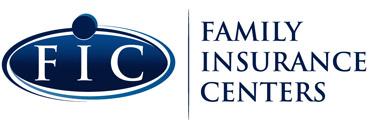What Kind of Homeowners Insurance Do You Need?

Most states require some form of insurance for any building where you can live. Depending on your situation, you might need much more than the state minimum or bottom-line policies. Let’s take a look at some of the variants in homeowners insurance and which ones might be applicable for you and your house. Learn what you need to know to make an informed decision about homeowners insurance.
Buyer’s Insurance
When you first buy a home and while you work to pay the mortgage, you’ll have specific coverage requirements from your state and likely your lender. Title insurance falls into this category, and even if you manage to pay for your house in cash, it’ll still be crucial since it protects everyone from tax liens or potential claims on the property you’ve bought.
Also, consider mover’s insurance through the transition into your new home. Moving companies legally have to provide a minimum amount of insurance, but if they handle your belongings roughly or break something valuable, you’ll want to have extra coverage. If you have anything worth protecting, you’ll be grateful to have the insurance, even if nothing happens.
Home Insurance
Homeowners insurance is a requirement for most mortgages, and with good reason. Without it, any accidents that could happen to your property will leave you still in debt and without the means to fix whatever damage it caused. This does not include disasters like floods, earthquakes, or maintenance problems, which require additional coverage.
Even once you own the house outright, you should keep your policy in place. Some of the details that made you fall in love with your home, like an older fireplace or antique molding, can be expensive to replace without home insurance. Evaluate everything inside the house too, and see if you have anything valuable that you’d have trouble replacing on your own. If the answer is yes, get the coverage.
Disaster Insurance
Minimum policy requirements often don’t cover natural disasters, which can leave a homeowner stranded in the event of a hurricane, fire, or flood. Determine what your structure is most vulnerable to, depending on the area and history, and make sure you have coverage in case history repeats itself.
For example, Florida’s fault lines are few and far between, which means that you’re unlikely to experience an earthquake near your home. Earthquake insurance would be an extra, and probably unnecessary, expense. However, floods are frequent and likely because of the proximity to sea level, so flood insurance is almost definitely necessary for your home to stay safe.
Builder’s Insurance
If you’re building a structure from the ground up or doing extensive repairs, you’ll want to consider the cost of building materials and labor, both immediately and for the future. On older buildings, you’ll want to set aside that money for keeping your house up to code or covering repairs to outdated systems that might stop working while you live there.
You should also have enough insurance on your home to rebuild it if necessary, especially in an area that disasters are frequent and harsh. Your goal should be to have the option to make everything how it was before. Don’t forget to adjust for inflation – the building materials that make up your home and the cost for labor could very well go up in price before you need to cash in your policy.
For superior service and the best rates, check out Family Insurance Centers. Our agents are committed to finding you the best possible homeowners insurance plans, no matter what your property needs. Contact us today for your auto, home, and life insurance.
